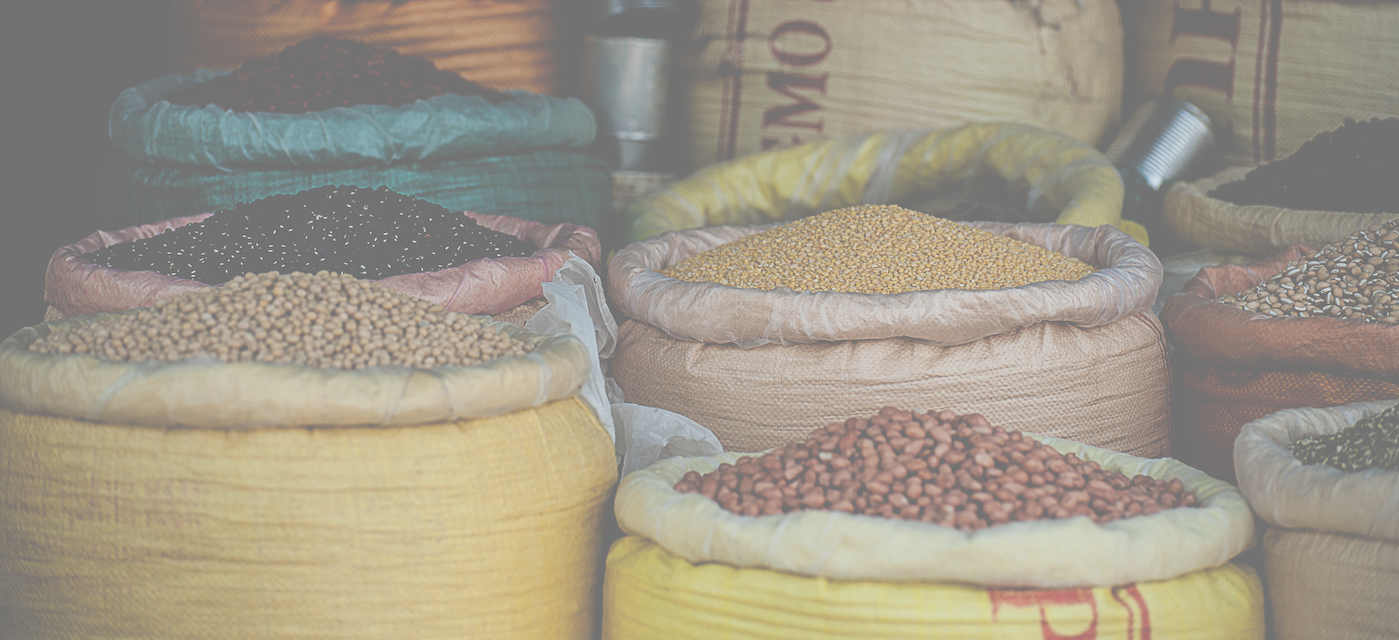
Meet the Hero In Your Nutrition Journey
She looks a bit like you. Walks like you. Talks like you. Thinks like you. She even sings and dances like you, for better or worse.
Spoiler alert: it’s you, years down the road. What do you want for that version of you? Who do you want that person to be? And what do you want that version of you to feel like? After all, what we put in our bodies greatly determines three things:
- How we feel, physically
- How we feel, mentally
- Our relationship with food
You won’t care about whether you ate that donut in 5 years. You won’t care about the crash diets, the Friday night binges, or the outlandish diet attempts. The best “diet” is the one you can stick to for the long term.
The nutrition journey isn’t about today or tomorrow. Or next week. It’s about every day from here on out. How can you make this journey sustainable?
But first, let’s look at a good old quote from everyone’s favorite Southern gentleman:
“And to my hero. That's who I chase. When I was 15 years old I had a very important person in my life come and ask me 'Who's your hero?' I said, 'I thought about it and it's me in ten years. So I turned 25 ten years later and that same person comes to me and goes, 'Are you a hero?' I said, 'Not even close!' She said why and I said, 'My hero is me at 35.' You see, every day, and every week, and every month, and every year of my life, my hero is always ten years away. I'm never going to be my hero. I'm not going to obtain that and that's fine with me because it keeps me with somebody to keep on chasing.”
- Matthew McConaughey
You see, you are the hero in this journey. And heroes, perhaps more than anyone, get knocked down. And they choose to get up and get back on that train. But that train has no destination. The journey itself is all that will ever matter. With nutrition, as well as in life, you need someone to keep chasing. Who better than your future self? What will a plant-based diet do for your future self? How might a consistent diet of whole foods put you in a position to remain active for decades to come?
So how do you get—and stay—on track for the long haul? This is your journey. Only you can listen to your body.
With that said, it never hurts to visit your doc or book a consultation with a nutritionist or nutrition coach. They can help you set realistic, long-term goals.
How to Start On the Right Path
 Starting is the hardest part. How do you get this journey in motion? Let’s say you’re trying to transition to a plant-based diet. You’re best off making small, incremental changes. Quitting most (or all) animal products overnight is a sure-fire way to fail. Whether you are trying to lose fat, gain muscle, reduce inflammation, or totally overhaul your diet, it’s best to take a small step towards that goal and slowly level up to achieve greater results, and build better habits.
Starting is the hardest part. How do you get this journey in motion? Let’s say you’re trying to transition to a plant-based diet. You’re best off making small, incremental changes. Quitting most (or all) animal products overnight is a sure-fire way to fail. Whether you are trying to lose fat, gain muscle, reduce inflammation, or totally overhaul your diet, it’s best to take a small step towards that goal and slowly level up to achieve greater results, and build better habits.
For many, a goal-a-month approach works quite well. By day 30, your newly adopted goal should start to ingrain itself as an eating habit of sorts.
Here are a few Step 1’s to try:
- Ditch convenience foods. Yes, this means you, fast food. Start planning ahead for those busy, on-the-go days. Pack snacks like apples + peanut butter, almonds, homemade fruit snacks, overnight oats, bananas, and kale chips. And try some Hemplete hemp protein bars. They’re the perfect on-the-go, protein-boosting snack.
- Buy a cookbook, sign up for a cooking class, or commit to purchasing whole foods. Not sure how to start this journey? These three are good fire starters. Buy a cookbook and commit to cooking two healthy meals per week. If you are feeding more than one, consider doubling up the recipe so you have plenty of healthy, delicious leftovers. Save the recipes you love and ditch those you don’t. Pretty soon you will be able to increase the frequency and make dishes from memory (and add your own creative spin).
- Secondly, aim to purchase a certain portion of all the foods you consume from a farmer’s market or natural foods store. This will help ensure that you load your diet with filling, nutrient-dense foods. Lastly, take a cooking class. There’s no better way to build your confidence in the kitchen and expand your culinary knowledge.
- Cut the crap. You don’t need to scan every label. However, what we feed our bodies is paramount. And after a while, you won’t even realize you’re doing it. Start by cutting out all food additives. And then target the artificial sweeteners. Then expand the list from there. Try replacing a portion of packaged and processed foods with whole foods. Then work your way towards eliminating all processed foods by a certain date.
- Limit foods that are generally bad for your health. Go through this list of offenders and decide which ones you can live without. And give it a go. You don't need to eliminate them from your diet entirely. Who doesn’t love cookies? Enjoy a few here and there, but like a bad in-law, don't let them stick around for too long.There’s always a healthier alternative. Follow @PlantYou and @Meowmeix on Instagram--both of these nutrition bloggers dish out tons of healthy replacement recipes daily.
- Use a food log or journal. Paper is powerful. Try logging everything you eat. This will help establish a baseline. It can also illuminate different voids or areas of improvement. More importantly, leave notes about how you felt after you ate each meal or snack. If something is making you feel sluggish or ill, you may want to cut it from your diet--at least temporarily. A visit to a food allergist could help determine whether or not to avoid certain things altogether.
How to Build a Healthy Relationship with Food

We function best when we’re eating consistently and in moderation. But that doesn’t mean you can’t crush a whole pizza one day or eat a box of cookies the next. However, yo-yo dieting can be bad for your body. And diets that are very limiting by nature can lead to up-and-down relationships with food. It’s best to look at food from a long-term health angle, not from a short-term dieting perspective. Ask yourself if this diet or set of guidelines and choices can work for you in the long-term, both enjoyably and sustainably—without running your life.
Food addictions, compulsive fasting, and emotional eating are real issues that many of us struggle with on a regular basis. Here are a few things to keep in mind:
Don’t beat yourself up if you give in to temptation. This isn’t a sprint. Eating a healthier, more nutrient-rich diet will greatly benefit you now and forever. As long as you’re heading in the right direction, who cares if you have a few donuts? As with most things, it’s all about moderation.
Count calories and/or macros if it makes sense for you. If you are trying to cut fat and control your energy levels, you may want to count calories and macros (fat, carbs, and protein), especially if you are putting in hard work in the gym and have set goals in mind. To achieve this, you’ll likely need to be in a calorie deficit. If you are trying to gain lean muscle, you may need to remain in a calorie surplus. As always, it’s best to consult a nutritionist before making any drastic diet changes.
Counting calories or macros might seem absurd to some, but by doing so, you will develop a more accurate picture of how many calories are in a dish, and may gain better control over your portions. Even if for a few weeks, counting calories helps to get an idea of how many calories you are consuming per meal or per day. Plus, it could help you maintain a healthy weight and diet for the long term.
Don’t demonize foods and unconditionally praise others. Kale isn’t the perfect food. Nothing is (aside from maybe hemp). ;) But seriously, go easy on the praise. No one food can deliver all the nutrition you need to build a healthier relationship with food. Some foods work more in your favor than others. But don’t let it get you down when you eat some junk food and stray from your goals. You can get back on the bus.
Limit opportunities to make unhealthy choices. That cake eating contest might be a bad idea. And we all know a thing or two about pressure eating. The next time you are at a family gathering and have second thoughts about dessert, don’t be afraid to pass on it.
Don’t be too restrictive. Many fad diets are restrictive by nature. Banning certain foods for a lifetime might be a bit extreme. A fries-free life? Maybe think that one over. That doesn’t mean you shouldn’t try paleo, keto, or Whole30Ⓡ or the next craze. These diets all encourage you to pay more attention to what you eat. But the best plan is the one that makes the best sense for you, your goals, and your long-term health.
How to Be the Hero In Your Fitness Journey

This is your life story and your nutrition journey. While it’s yours to write, there are things out of your control. At the end of the day, you need to do what makes you happy and feel healthy. Don’t be afraid of any single ingredient or food or macronutrient. Don’t be afraid of off days.
If you love keto, do it. If you love cycling carbs, cycle carbs. If you love paleo, do paleo. If you love intermittent fasting, keep it up. Just be more mindful about what goes into your body. Is your food fueling your life or bringing it down?
Don’t let anyone tell you how to eat (accept maybe licensed professionals). But be a hero by doing your research, listening to your body, and developing a healthy diet that fits your goals and lifestyle. And make it last a lifetime, no matter how many trials, hiccups, and evolutions you endure.
And consider a plant-based diet made up of clean, delicious, and sustainable foods. Like you, plant-based nutrition is built for longevity. And if you do love meat, have at it. Just try to opt for responsibly farmed products whenever possible.
Good luck on your beautiful nutrition journey! Now go eat some cookies… errrr Kale. Or kale cookies. No, don’t do that.
With seeds of love and hemp,
- The Hemplete Team



Leave a comment
This site is protected by hCaptcha and the hCaptcha Privacy Policy and Terms of Service apply.